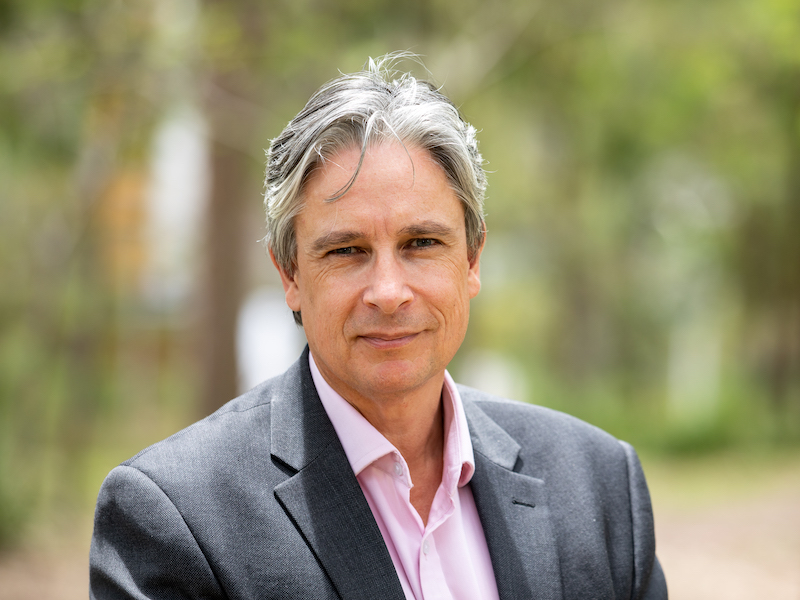A global leader and pioneer in integrated care
Professor Nicholas Goodwin has dedicated his career to advancing the science, knowledge and adoption of integrated care in policy and practice around the world.

Professor Nicholas Goodwin has long been at the forefront of a global trend towards integrated care that coordinates and delivers health services around people’s needs.
Throughout his impressive career, Nick has held leadership roles for globally renowned organisations such as the International Foundation for Integrated Care (IFIC), spearheaded programs of work for the likes of The King’s Fund — the UK’s leading health charity – and co-founded the International Journal of Integrated Care.
In 2015-16, Nick wrote and edited the World Health Organisation’s Global Framework on People-Centred and Integrated Health Services that was ratified by the World Health Assembly and adopted by countries worldwide — another of his many career achievements.
In each and every role, across research, advocacy and education, Nick has remained focused on achieving real-world outcomes for people and communities, especially the most vulnerable.
“My research has really only one set of goals: to motivate action towards the design and delivery of integrated models of care that help to improve people’s care experiences and outcomes with improved system efficiency.”
The challenge of integration
Integrated care is a style of service delivery that places the person at the centre of care. By considering people’s wider health and wellbeing needs the approach seeks to coordinate care and services delivered by multiple providers as effectively and seamlessly as possible.
Integrated care has gained global attention as a way to combat fragmentation in care delivery, where care becomes so poorly co-ordinated around people’s needs that there is a sub-optimal, or even an adverse, impact on care experiences and outcomes.
“Fragmentation of care often impacts the most vulnerable populations: the elderly, people with complex mental health challenges or chronic illnesses, Indigenous groups and ethnic minorities, and people living in rural and remote communities.
“Such groups require coordinated access to a range of care and support services. But evidence shows they are most likely to fall between the cracks of our fragmented care systems, leading to significant inequalities in care outcomes.”
After coming to this serious realisation, Nick knew that a movement of change was needed. Like many worthwhile causes, the process of social change has taken significant time, determination and collaboration.
“The key challenge has been how to bring organisations and professionals together to work differently, to fully engage with the people of local communities that they serve, and to recognise what a difference can be made to everyone’s lives if we challenge established preconceptions or perceived barriers head-on through collective action.
“The challenge is not primarily one of system design (though that is often hard) but of system implementation, which means we have to re-think the focus of our research efforts if we truly want to encourage better research translation.”
Unleashing a global movement
After helping integrated care gain merited international attention, Nick was only too happy to step into the role of consultant for governments wishing to make the switch.
In an advisory capacity, Nick has helped develop and provide evidence-informed input into national government policy reforms needed to implement integrated care in Belgium, Spain, England, Finland, Kazakhstan, Mexico, New Zealand, Poland, Portugal, Qatar, Saudi Arabia, Singapore, and Taiwan.
“Many of these engagements also included the developed of education and training programs for senior decision-makers and clinicians designed to support health system strengthening.”
From 2018, under an EU-contract, Nick led a translational research project with the Department of Social Affairs of the Government of the Republic of Estonia to develop new strategies and models of integrated care focusing on vulnerable adults in local municipalities. The approach was adopted as part of its national policy reforms in 2020.
Nick has also provided support at a regional and local level. For example, in 2016, he was chief investigator on a translational project that enabled the metropolitan region of Salvador, Brazil, to design and implement a new model of intermediate care for older people.
In Australia, Nick has supported work with the likes of North Coast Primary Health Network (PHN) and Central Coast Local Health District (LHD), including summer schools and accelerated learning programs enabling professional partnerships to develop their project plans for integrated care across at least 10 LHD and PHNs in NSW. This work continues in the IFIC Australia network.
In 2016, Nick’s tireless advocacy for the adoption of integrated care in policy and practice worldwide led him to be awarded the prestigious Avedis Donabedian International Award for his contribution to Healthcare Excellence.
Investing in our Central Coast communities
Nick took on the role of Director of the Central Coast Research Institute for Integrated Care in 2019. In this role, he hopes to grow economic, health and wellbeing benefits for the Central Coast community and beyond, building on his past experience and success.
“It’s motivating to know that our efforts have led to positive changes in how people work, in the way services are developed, and in improving outcomes. The ability to ‘make a difference’ in an area with clear public value is a privilege.”
Looking back, Nick is proud of his achievements as a social change researcher, advocate, leader and pioneer of the integrated care agenda. He is excited about the next chapter in his career and has sound advice for anyone looking to follow in his footsteps.
“Working life will always throw up all sorts of unexpected and persistent challenges. It’s important to stay true to yourself and your values, have fun, and act with integrity.”
The University of Newcastle acknowledges the traditional custodians of the lands within our footprint areas: Awabakal, Darkinjung, Biripai, Worimi, Wonnarua, and Eora Nations. We also pay respect to the wisdom of our Elders past and present.